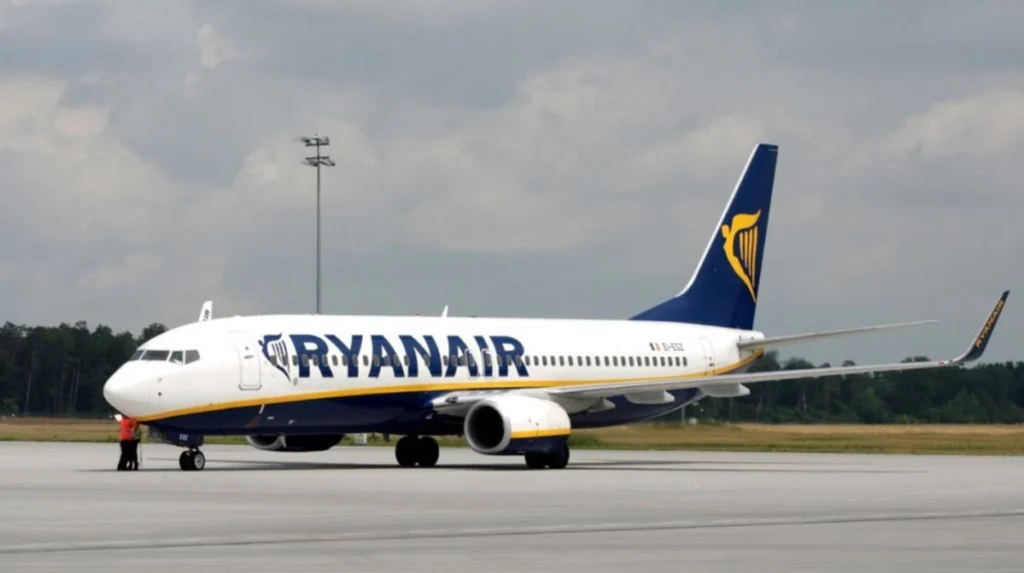Lithuania has officially suspended its investigation into the forced landing of a Ryanair plane in Minsk that occurred on May 23, 2021, transferring jurisdiction to Poland for prosecution. This decision marks a significant development in an international aviation incident that caused widespread condemnation and ongoing geopolitical tensions.
Background of the Incident
On May 23, 2021, Ryanair Flight 4978, traveling from Athens to Vilnius, was forcibly diverted to Minsk, the capital of Belarus. Belarusian authorities, citing a bomb threat, compelled the civilian aircraft to land. Upon landing, Belarusian security forces detained Raman Pratasevich, a prominent Belarusian opposition journalist and founder of the Nexta news channel, along with his partner Sofia Sapega, a Russian citizen studying in Lithuania. The incident was widely denounced as a state-sponsored hijacking and a blatant violation of international aviation laws.
The Belarusian government claimed the plane was diverted due to a credible bomb threat sent by a party claiming to represent Hamas, demanding an end to EU support for Israel amidst the Gaza conflict. However, this explanation was met with skepticism from Western officials and international observers, who described it as a pretext for the forced arrest of political dissidents aboard the flight.
Details of Lithuania’s Investigation and Suspension
Lithuania launched its investigation immediately after the incident, focusing on accusations of enforced disappearance, aircraft hijacking, and breaches of aviation safety protocols. Lithuanian prosecutors worked in coordination with investigators from Poland, given that the Ryanair aircraft was registered in Poland.
On October 16, 2025, the Lithuanian Prosecutor General’s Office announced the suspension of its investigation. The office cited the existence of a parallel ongoing investigation by Polish authorities and an agreement between Lithuania and Poland to consolidate efforts under Polish jurisdiction.
“The investigation was terminated because the Polish authorities are conducting a similar investigation, and the case will now proceed under Poland’s jurisdiction,”
a Lithuanian prosecutor stated.
This was consistent with international legal norms that prevent double prosecution for the same crime in multiple countries. Lithuania’s Criminal Police Bureau had gathered evidence over the course of four years but agreed with Poland that criminal prosecution would be more effectively handled through the Polish legal system.
Polish Role and Accusations
Polish prosecutors opened their investigation a day after the incident in May 2021, focusing on the false bomb threat, seizure of control over a Polish-registered aircraft, and the illegal detention of passengers, which they have classified as acts of terrorism. Poland has since identified three suspects allegedly responsible for orchestrating the forced landing: Andrej Myćko, head of the 9th Directorate at the Belarusian KGB; Leanid Čuro, director of Belarusian Air Navigation Service; and Jaŭhien Cyhanoŭ, a shift leader in Belarusian air traffic control. All three individuals have been put on the Interpol wanted list.
“Bringing perpetrators to justice will continue in Poland based on evidence shared by Lithuania,”
the Polish prosecution announced following Lithuania’s suspension of its probe. The move aims to centralize responsibility and ensure a coherent judicial prosecution pathway for what has been described internationally as a terrorist act against civil aviation.
International Reactions and Impact
The incident sparked a major aviation and diplomatic crisis at the time. The European Union, the United States, and other Western countries condemned Belarus’ actions as a violation of international norms. Lithuania immediately banned all flights over Belarusian airspace, urging EU nations to follow suit. Ryanair CEO Michael O’Leary labeled the diversion a “state-sponsored hijacking,” underscoring the gravity of the situation.
EU authorities summoned the Belarusian ambassador, branding the forced landing an “outrageous action” and a “blatant attempt” to stifle dissent within Belarus. The incident also saw Belarus imposing an official investigation, but their explanations failed to convince international regulators and reacting governments.
The Belarusian regime eventually convicted and then pardoned Pratasevich and Sapega after international pressure. However, the repercussions for Belarus’ aviation relations and international standing remain severe. Multiple EU sanctions were imposed on Belarus, targeting key regime figures involved in the hijacking and aircraft diversion.
Legal and Geopolitical Significance
The Ryanair forced landing episode remains a landmark case for international civil aviation safety and human rights advocacy. Lithuania’s decision to hand over prosecutorial responsibility to Poland underscores the complex nature of such transnational cases, where jurisdiction must be carefully coordinated.
This process also illustrates the broader geopolitical struggle surrounding Belarus—where Western countries challenge the authoritarian government’s disregard for democratic norms, and Belarus continues to face isolation and sanctions.
In concluding the Lithuanian investigation, officials remarked on the importance of avoiding duplicated legal processes, allowing for a focused and unified pursuit of justice in Poland. This step is expected to bring more clarity and possibly prosecutions against those responsible in Belarus.
Lithuania’s closure of the investigation after nearly four years marks a procedural advancement, but it does not diminish the broader political and legal battle to hold the Belarusian regime accountable for actions that imperiled the safety and rights of innocent passengers onboard Ryanair Flight 4978.







